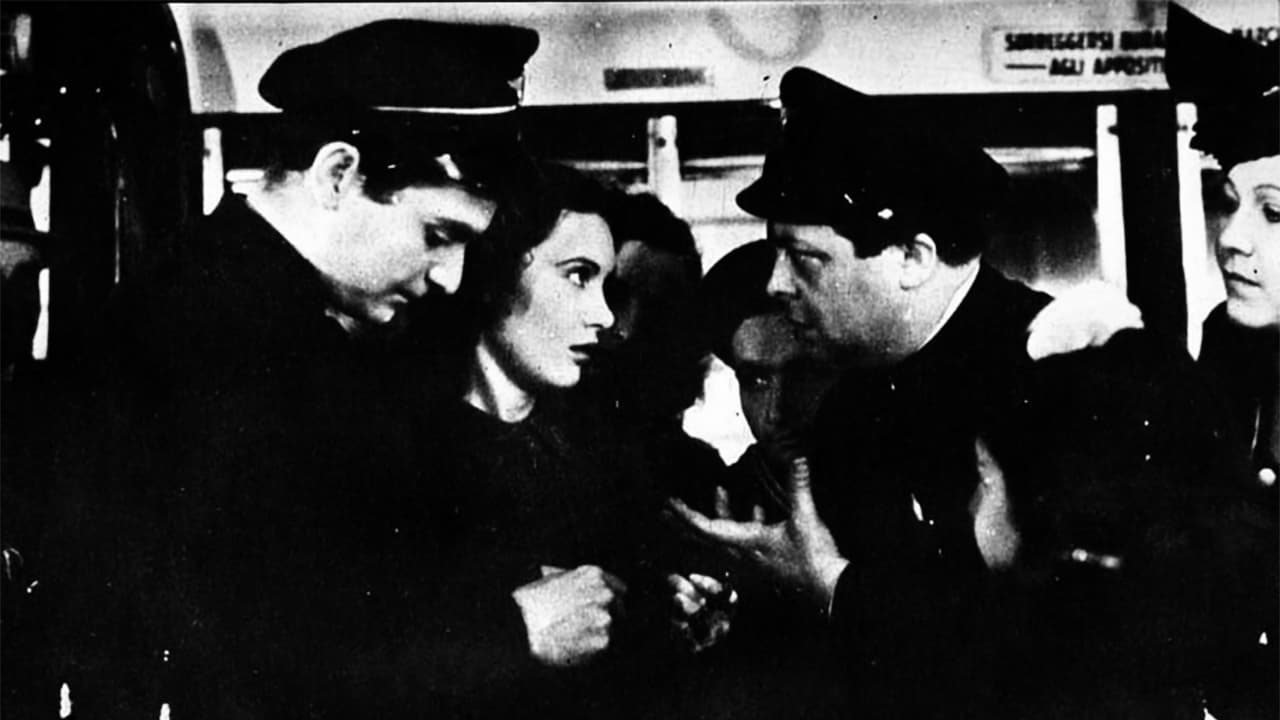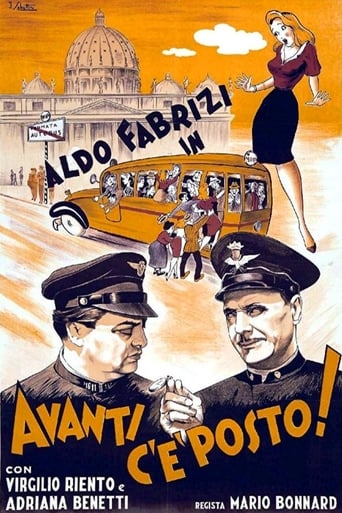



How sad is this?
An Exercise In Nonsense
I saw this movie before reading any reviews, and I thought it was very funny. I was very surprised to see the overwhelmingly negative reviews this film received from critics.
View MoreEach character in this movie — down to the smallest one — is an individual rather than a type, prone to spontaneous changes of mood and sometimes amusing outbursts of pettiness or ill humor.
View MoreOnce one accepts the improbable premise of this film, it turns out to be a very delightful and at times moving story with comic elements. Aldo Fabrizi is a Roman bus ticket-man, Cesare. Coming to the aid of a young housemaid (Adriana Benetti) who has been robbed of money she owes her employer, he attempts to help her recover her money. When that fails, he tries to try to land her a new job, to get her "sistemata." It turns into an odyssey of mishaps and surprises, with a romantic attachment, often as fatherly as amorous between the girl and the man. Fabrizi's conductor colleague Bruno(Andrea Checchi) is a prankster, otherwise friendless, and becomes a rival when he himself becomes fond of the girl. He must relinquish her at the end as he goes off to war.Many elements of the plot bear some tonal resemblance to the contemporaneous film of Blasetti "Quattro passi fra le nuvole," with Gino Cervi as the fatherly guardian angel and Adriana Benetti in a roll almost identical to this one, that of the innocent girl besieged by a host of problems, and finding solace in the understanding of a stranger who befriends her and does immense favors for her. Unlike Blasetti's film, however, the girl is not pregnant and afraid to go home to her parents, but just jobless and disoriented for a time. It is easy to confuse the two movies, as I have seen done.Many of the Italian films made during this fascist era were escapist in nature (when not overtly patriotic) and tended to avoid the reality of the war. Here it seeps into the dialog and into the background, with soldiers in uniform on the streets, with a main character going off to battle by the end of the film. It bears some aroma of soon-too-burgeon neorealist films, one of which, Rossellini's "Open City," Fabrizi would be central to in three years.I didn't expect much from this movie, perhaps some light comedy and a few laughs, but it also has a good measure of poetic melancholy which transforms it into something even stronger, even better. The scene in which Fabrizi dictates a letter to his nearly-friendless friend, Bruno, as the man is about to embark on his military service, is very moving. Cesare tells him what to say to his mother in the letter, and the expression on Bruno's face when he realizes how good a person Cesare is, is astonishingly moving.
View More